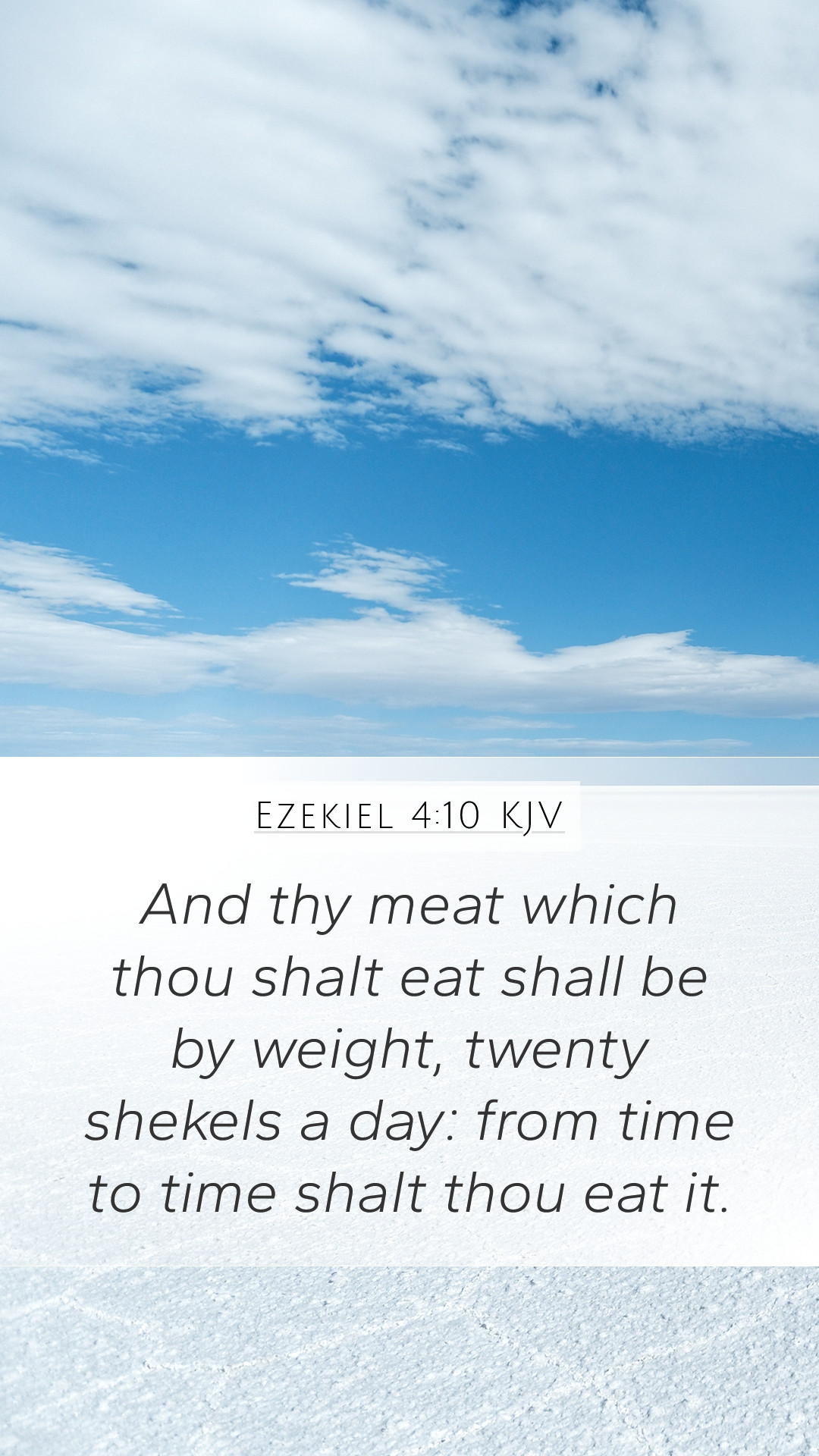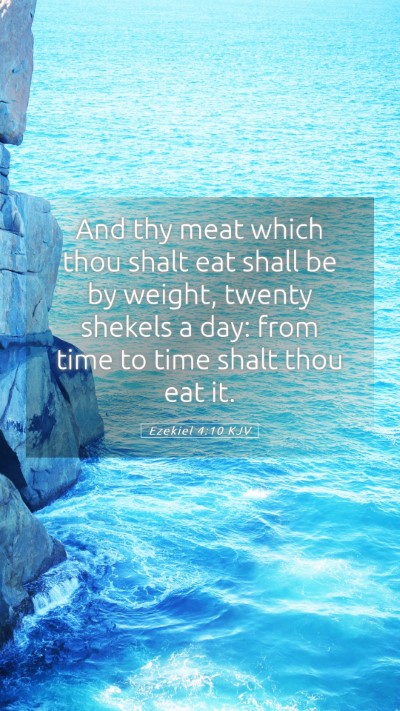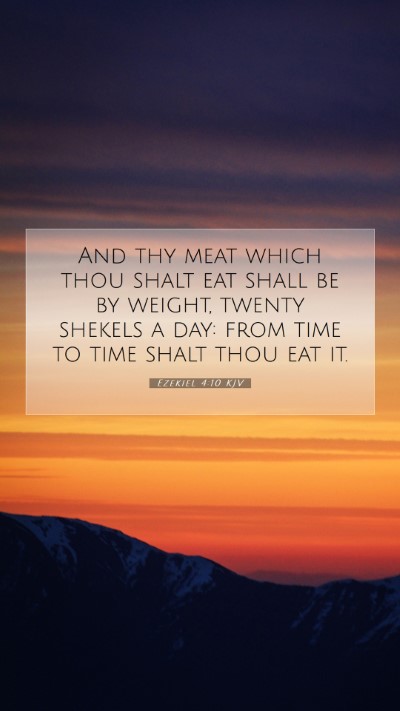Ezekiel 4:10 - Bible Verse Meaning and Interpretations
Ezekiel 4:10: "And your food which you eat shall be by weight, twenty shekels a day; from time to time you shall eat it."
This verse presents a command given to the prophet Ezekiel regarding his diet during a symbolic act of prophesying the siege of Jerusalem. Understanding this verse requires delving into its implications and the historical context surrounding it. Below is an analysis and commentary on the verse, focusing on its meaning, significance, and application for biblical studies.
Contextual Overview
The Book of Ezekiel is filled with vivid imagery and symbolic actions reflecting God's messages to His people. Ezekiel, a prophet during the Babylonian exile, used dramatic means to communicate the fate of Jerusalem and the people of Israel. This particular command concerning food serves as a representation of the scarcity and desperation that would result from a siege.
Bible Verse Explanations
According to Matthew Henry, the specified ration of food highlights the deprivation the people of Jerusalem would face. It indicates a period of difficulty where sustenance would be carefully measured due to the siege. Henry notes that these actions denote both literal hunger and a spiritual lesson. This constraint is a call to recognize the severity of their situation and the need for reliance on God’s provision.
Albert Barnes adds that twenty shekels of food, which is equivalent to approximately half a pound per day, emphasizes the extreme conditions under which Ezekiel and his audience would live. This meager allowance reflects the dire consequences of disobedience to God. Furthermore, Barnes argues this verse serves as a prophetic symbol, demonstrating the reality of God's judgment upon unfaithfulness.
Adam Clarke points out that the portion outlined signifies a symbol of scarcity, illustrating the consequences of sin within the nation. Clarke explains that this verse, like others in Ezekiel, is not just to be taken literally but also serves as a prophetic message conveying a deeper spiritual truth about the relationship between God and His people, especially regarding their sin and its repercussions.
Spiritual Applications
For modern readers, understanding Ezekiel 4:10 involves recognizing how God uses physical circumstances to teach spiritual lessons. The historical context of this verse can be applied to contemporary lives by instilling awareness of spiritual nourishment and the importance of reliance on God even in times of scarcity.
Furthermore, this verse encourages believers to reflect on their spiritual diets. Just as Ezekiel was commanded to consume a small portion of food, we are reminded that our spiritual provisions must come from God and will not always be plentiful in times of trial. Engaging in consistent Bible study allows for deeper spiritual insight and understanding of God's faithfulness in our lives.
Related Bible Cross References
- Jeremiah 52:6 - Discusses the siege of Jerusalem and the famine that ensued.
- Lamentations 4:9 - A vivid picture of hunger caused by the siege.
- Ezekiel 4:9 - Further illustrates the symbolic use of food in Ezekiel's prophecy.
Conclusion
Ezekiel 4:10 serves as a profound reminder of the consequences of sin and the necessity for dependence on God's provision. By studying this verse, readers can develop a better understanding of how God's messages were conveyed through the lives and actions of His prophets. As we apply these lessons to our lives, we gain insight into God's character and His expectations for His people.
For anyone seeking bible verse meanings and interpretations, Ezekiel 4:10 encapsulates the essence of divine communication during a critical period in Israel's history. Engaging deeply with such verses fosters spiritual growth and a more profound understanding of Scripture.


